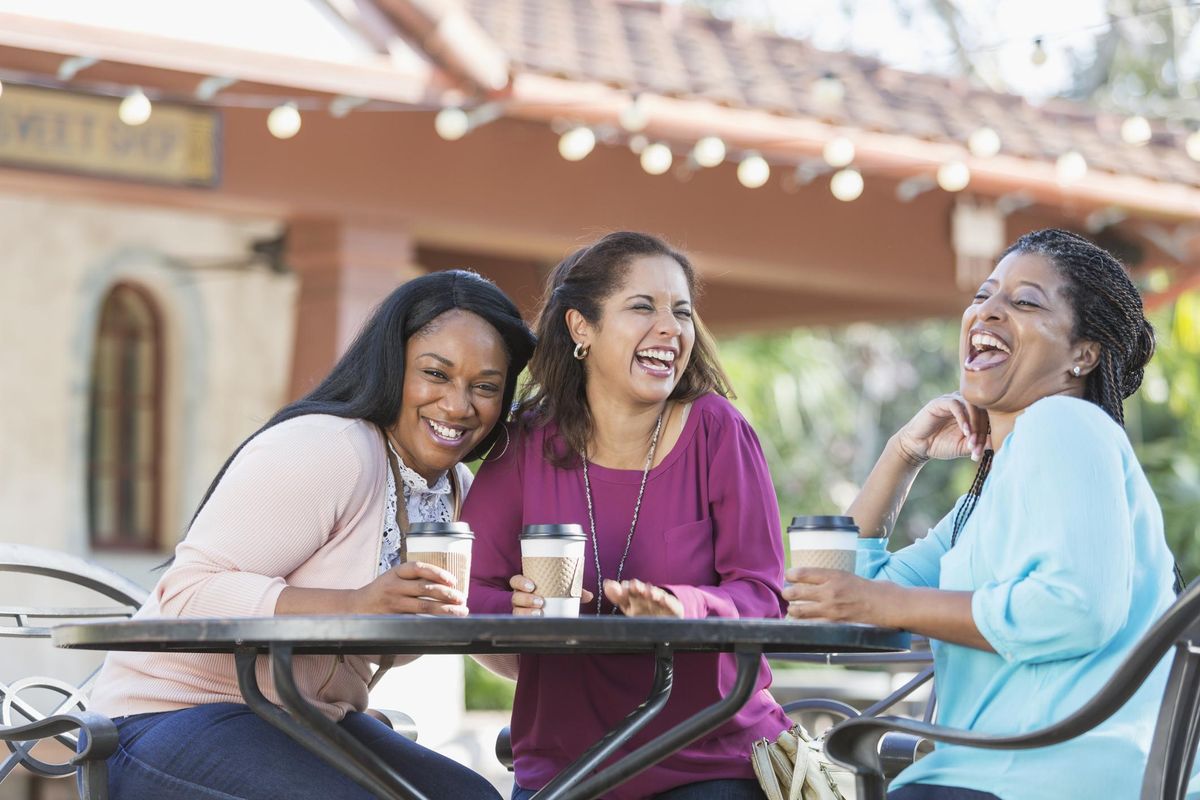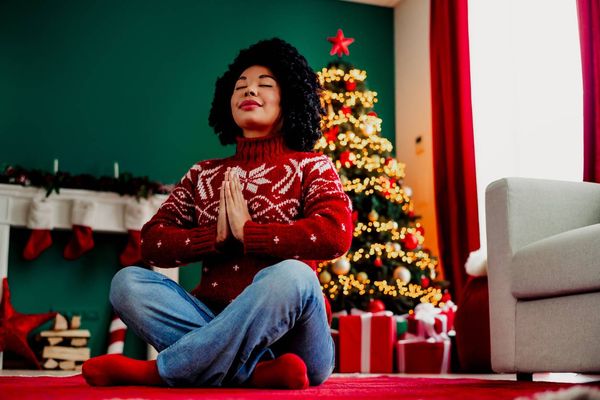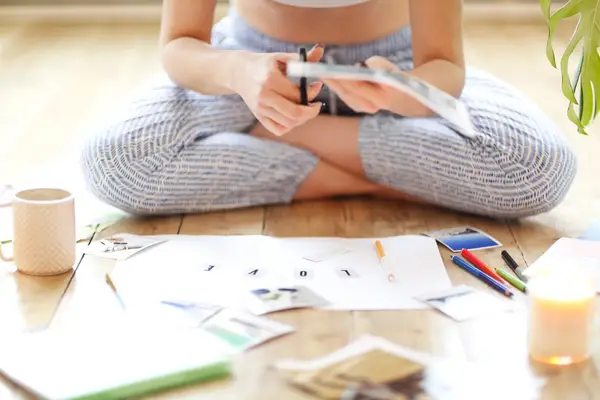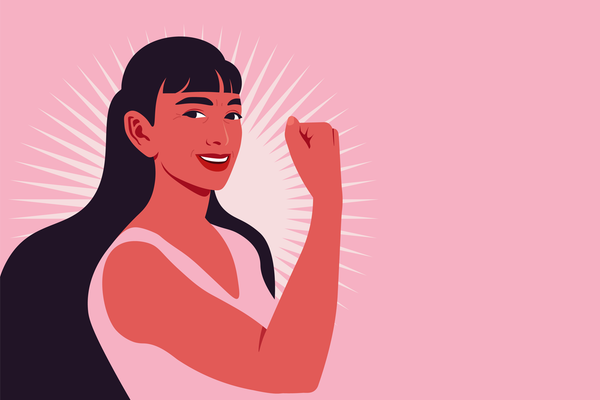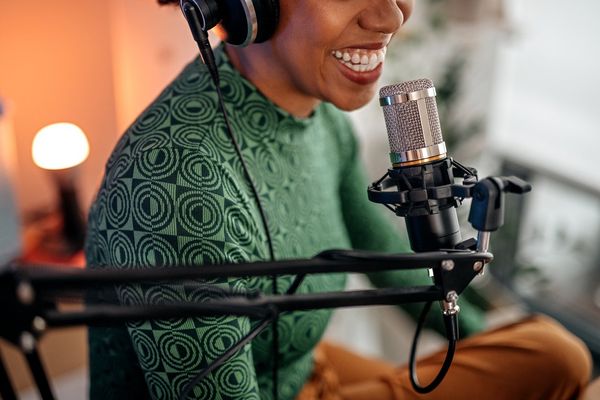August 1 is National Girlfriends Day.
In 2013, Melissa Berry was diagnosed with triple negative breast cancer. "It's a very aggressive form, and there were some pretty bad white-knuckle moments where I didn't know what my prognosis was going to be," Berry, now 50, recalled.
She credits her friends as helping get her through her treatments. Berry has a group of girlfriends she met during fashion school, known as "The Fashion Army," who began sending her care packages of comfortable bras, cozy cardigans and underwear. "They even sent me a hug in the mail," Berry says. "They laid down on craft paper and had their significant others draw outlines of them and sent them like hugs. Every week, I would get a different care package, which was amazing."
Berry's friends also stepped up during the pandemic, when everyone was isolated and anxious. They Zoomed together, texted and phoned each other to check in. "Friends have really gotten me through so much," she said.
Friendships are a crucial part of life. And whether it's learning to navigate the world of motherhood, commiserating over work stress or surviving a global pandemic, our girlfriends are often what get us through.
At HealthyWomen, we celebrated these friendships during our upcoming Women Talk® … #GirlfriendsDay Facebook Live. Here's a look into some of the benefits your gal pals can bring into your life.
Friends are good for your health
A University of Michigan study found that feeling close to a friend emotionally increases your progesterone levels, which can help you experience less stress and anxiety. Other studies show that social connections can improve your cognitive ability, help people cope with trauma, divorce, the death of a loved one, or in the case of Bell, a cancer diagnosis, as well as also increase your sense of purpose and belonging and happiness.
Friends can also motivate you to make healthy choices. Sybil Amuti, founder of The Great Girlfriends, a personal and professional development podcast for women, says your peer circle can greatly affect your decisions. "[This] means if my friend is getting into a new wellness practice, I'm going to practice some of the same things as my friend. If she's going to get a mammogram, I'm going to go with her. If my friend is getting her annual visits, I'm also going to be nudged to gently remind me by my friends," she explained.
Friends can get you through anything
Mary Jo Wallo, founder of Blue Thong Society, an international network of over 5,000 women, 21 and over, has a "Sister Chicks" group who've been there for each other for 20 years. "We've seen each other through thick and thin — losing a child, cancer, divorces, the whole gamut of life," she said. "If it wasn't for all of us, I don't know if we would have been able to get through a lot of the things we've experienced."
These days, Wallo's clan is helping her navigate an osteoporosis diagnosis. They were also there when she hit menopause later than the rest of them. And even though her husband is supportive, Wallo said she relies on that camaraderie with other women more and more as the years go by.
It’s important to nurture your friendships
Dr. Rena Ferguson, an interventional psychiatrist and member of HealthyWomen's Women's Health Advisory Council, warns that many of us don't tend to our friendships the way we always should. She and her "gal pals'' have spent the past five years meeting for breakfast once a month. "It's the highlight of my month," she said, noting that to be a good friend means you have to commit to investing in friendship.
It's also important to be supportive of your friends. One thing we have to watch out for, Ferguson said, is our need to judge other women. "For instance, if you want to give a shout out to something like breastfeeding, it doesn't mean we are damning someone else's choice to do otherwise," she explained. "One great way we can support one another is to keep giving those shout outs and to try to come off as nonjudgmentally as possible."
2020 really taught us the importance of friendships
When the world shut down, many of us turned to our friends for Zoom happy hours, playing games online or daily venting calls. Amuti says the pandemic caused everyone to suffer some level of stress and anxiety; our girlfriends doubled as therapists, and we were quick to return the favor.
Choosing your friends wisely
You want people in your corner that act as challengers, cheerleaders and chargers, according to Amuti. Cheerleaders, she said, give you the message through positive reinforcement that "you can do it." Chargers stimulate you to view roadblocks as opportunities. And challengers shift your perspective and help you stick to decisions.
"I love those three components of friendship because when you have a well-rounded friendship circle, you really are padded and empowered to be the best version of yourself," she said.
- Girls' Trips Really Are Good for Your Health - HealthyWomen ›
- The Social Network: Building Friendships for Empty Nesters ... ›
- What Do Your Friends Mean to You? - HealthyWomen ›
- Why Friendships Are So Important - HealthyWomen ›
- Someone Who Likes You: The Importance of Girlfriends for Mental Health - HealthyWomen ›

